
3.7V LiPo Battery Packs LP123557 2P 5000mAh
What is a LiPo battery? LiPo (AKA "Lithium Polymer") battery is a type of rechargeable battery that uses lithium-ion technology with a polymer electrolyte instead of the more common liquid electrolyte found in other lithium-ion batteries. One of the good things about using lithium polymer batteries compared to nickel metal hydride batteries is that they offer more power and longer running.
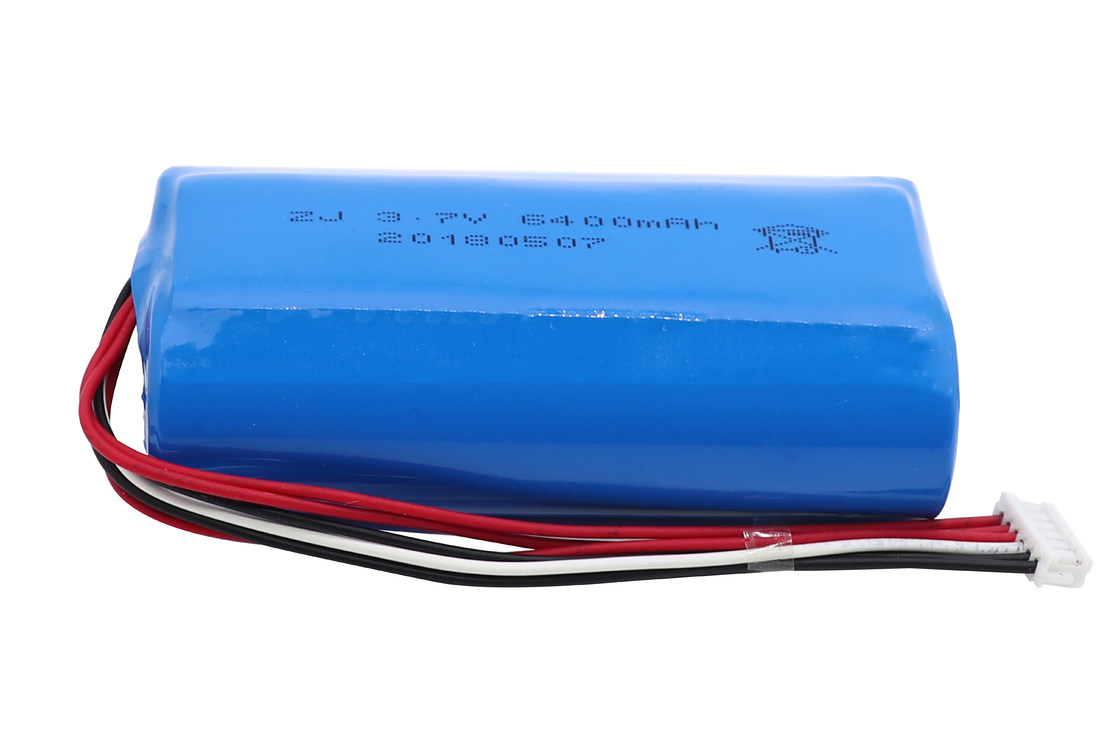
18650 Cylindrical Lipo Battery 2P Rechargeable 6400mah Lithium Polymer 3.7V Lioin Battery
Lithium-ion battery, a rechargeable battery in which lithium ions move from the negative electrode to the positive electrode during discharge and back when charging Aqueous lithium-ion battery; Lithium-ion flow battery; Lithium ion manganese oxide battery; Lithium polymer battery; Lithium-silicon battery; Lithium-titanate battery. Lithium.

3.7 v 650mah lipo battery CMX battery Custom lithium polymer battery
Lipo Battery Basics. For some pilots, the idea of tuning a combustion engine is enough to keep them away from the flying field. Electric-powered aircraft provide these pilots a means to enjoy model aviation without the fuss of a "traditional" engine. LiPo (Lithium-Polymer) batteries are a popular means for powering our electric models.

High Quality 3.7v 2400mah Icr 18650 Lithium Liion Rechargeable Lipo Battery...
The research is published in Nature. Associate Professor Xin Li and his team have designed a stable, lithium-metal battery that can be charged and discharged at least 10,000 times. Eliza Grinnell/Harvard SEAS. "Our research shows that the solid-state battery could be fundamentally different from the commercial liquid electrolyte lithium-ion.

6S 22,000mAh 30C LithiumKing LiPo Battery Pack 219.99
Typically, PMICs charge LiPo and Lithium-Ion batteries using the CC-CV method. The battery gets charged with a constant current until the cell reaches its maximum voltage. From then on, the charger gradually decreases the charge current until the battery is fully charged. Modern charge ICs apply a few more steps to the process to increase.
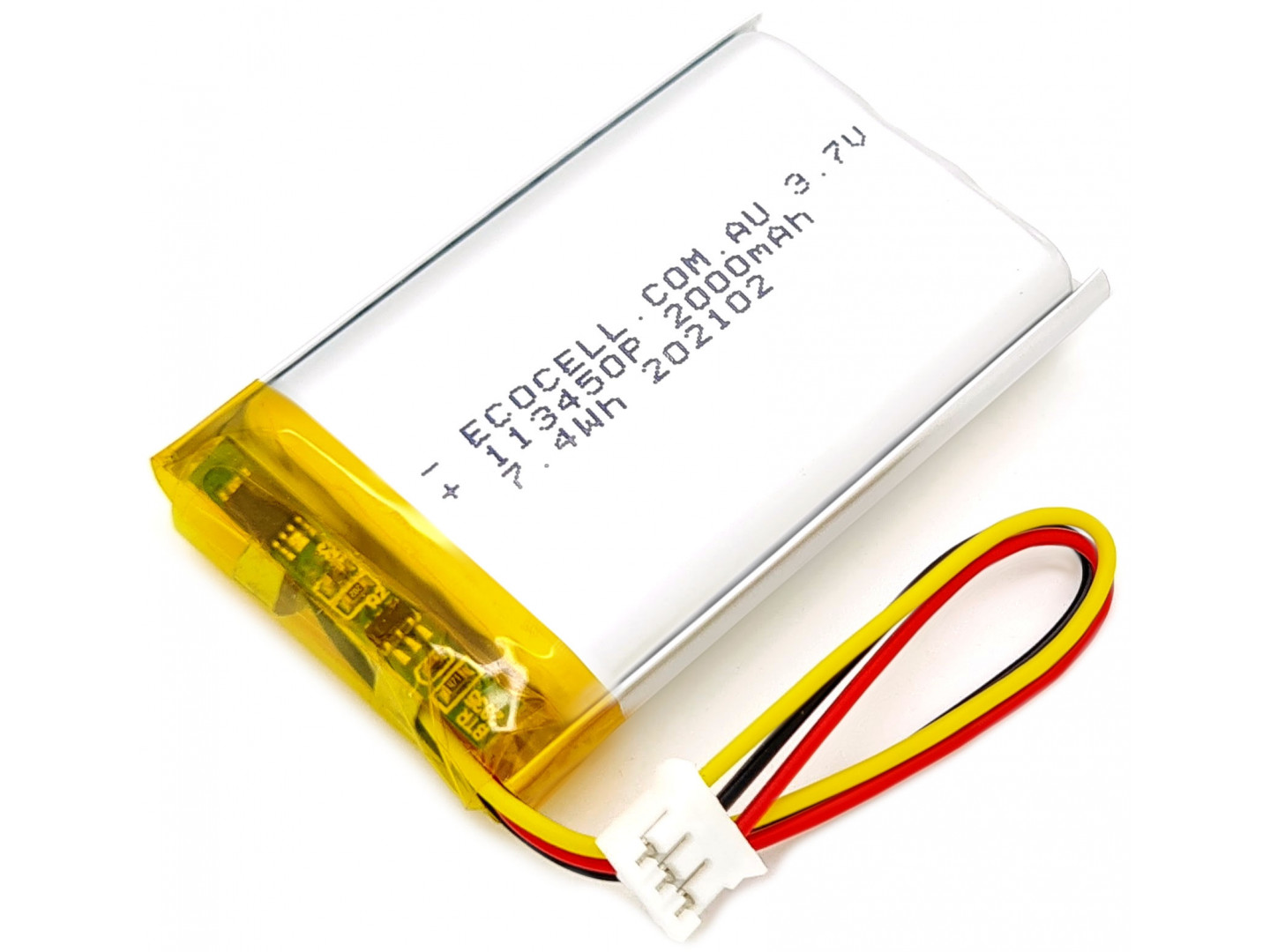
LiPo Battery 2000mAh 3.7V 3 Wires(3 pin) 113450, Polymer Lithium Ion Ecocell
This is because Li-Poly batteries tend to be a bit more robust than Li-Ion. Lithium-polymer technology again uses a positive and negative electrode but with a dry solid, porous chemical, or gel.
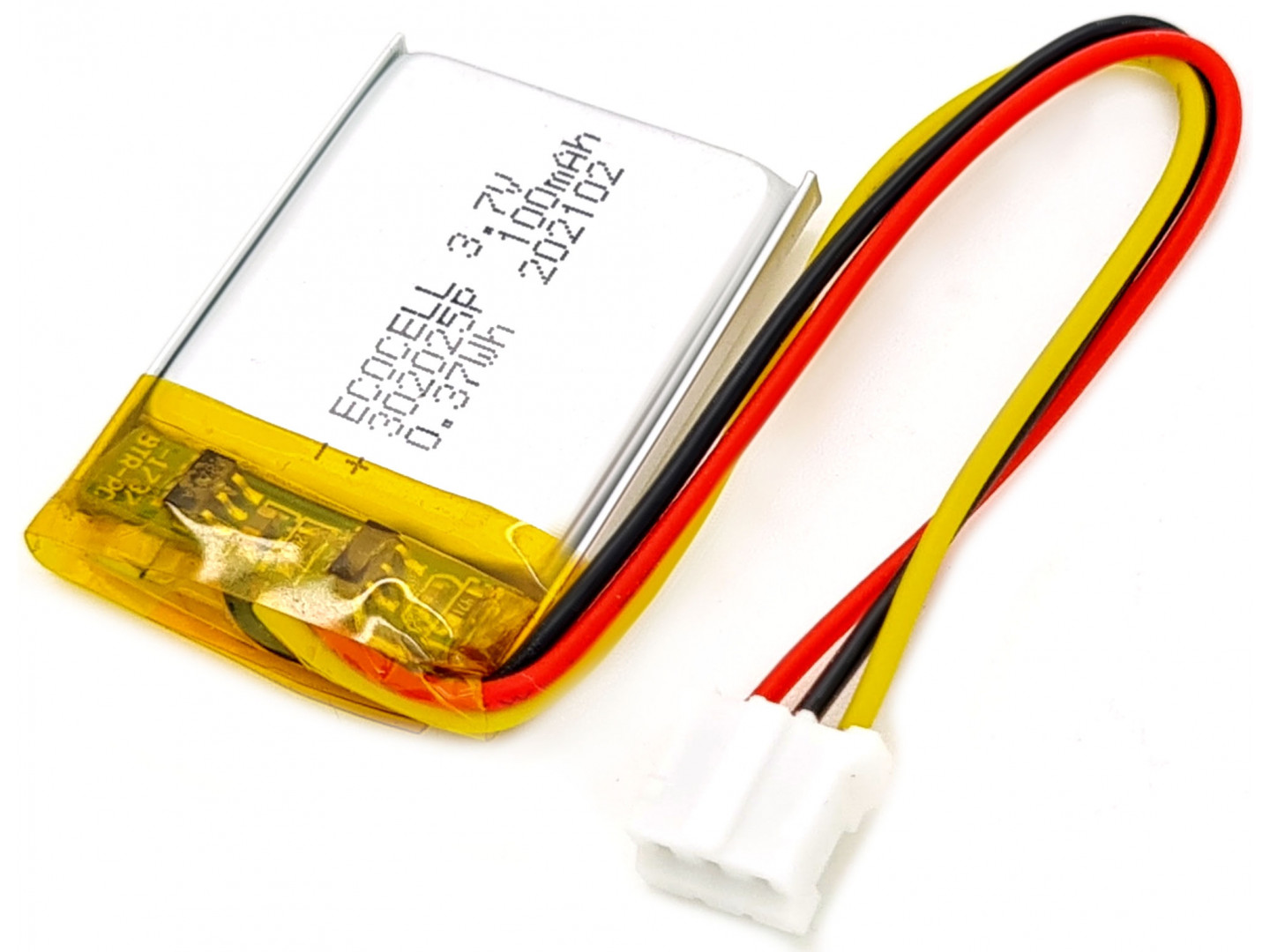
LiPo Battery 100mAh 3.7V 3 Wires(3 pin) 302025, Polymer Lithium Ion Ecocell
lithium polymer battery (LiPo): A lithium-polymer battery (LiPo) is a rechargeable battery that, in the case of true LiPo, uses solid polymer for the electrolyte and lithium for one of the electrodes. Commercially available LiPo are hybrids: gel polymer or liquid electrolyte in a pouch format, more accurately termed a lithium ion polymer battery.
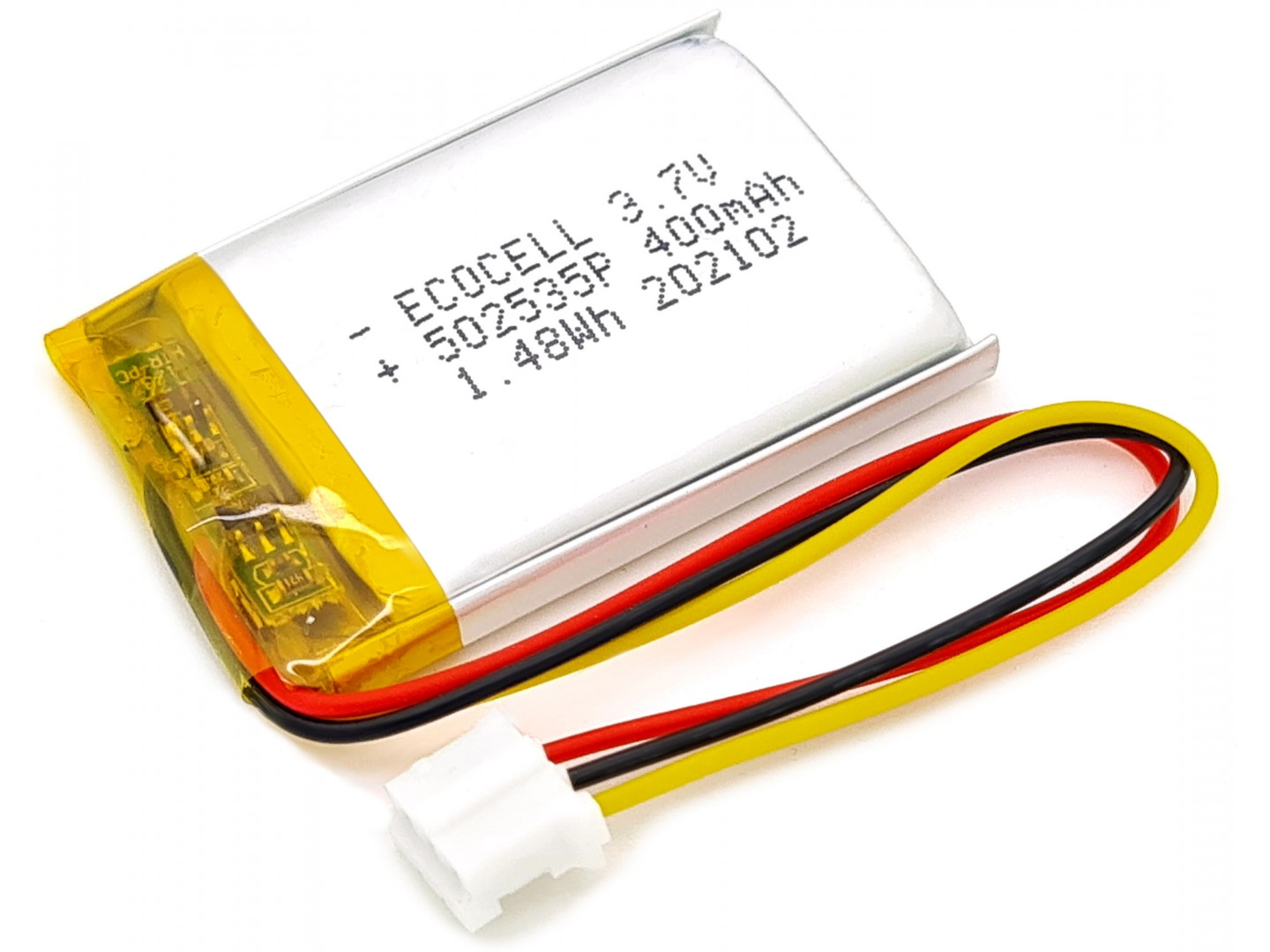
LiPo Battery 400mAh 3.7V 3 Wires(3 pin) 502535, Polymer Lithium Ion Ecocell
Most lithium-ion batteries, unlike more traditional ones, also include an electronic controller, which regulates power and discharge flows so your battery doesn't overheat or explode. The most significant difference between lithium-ion and lithium-polymer batteries is the chemical electrolyte between their positive and negative electrodes.

11.1V 2200mAH (Lithium Polymer) Lipo Rechargeable Battery
An all-solid-state battery with a lithium-metal anode is a promising can-didate for electric vehicles due to its higher energy density and safety1-5. Solid-state electrolytes (SSEs) possess.

YDL 3.7V 500mAh 612338 Lipo Battery Rechargeable Lithium Polymer ion Battery Pack with JST
6. Useful Life. Lithium-ion batteries generally last longer than lithium-polymer batteries. An average lithium-ion battery can last two to three years, whereas lithium-polymer batteries have a much shorter life span. That's because the gel-based electrolyte begins to harden in Li-Po batteries. 7.
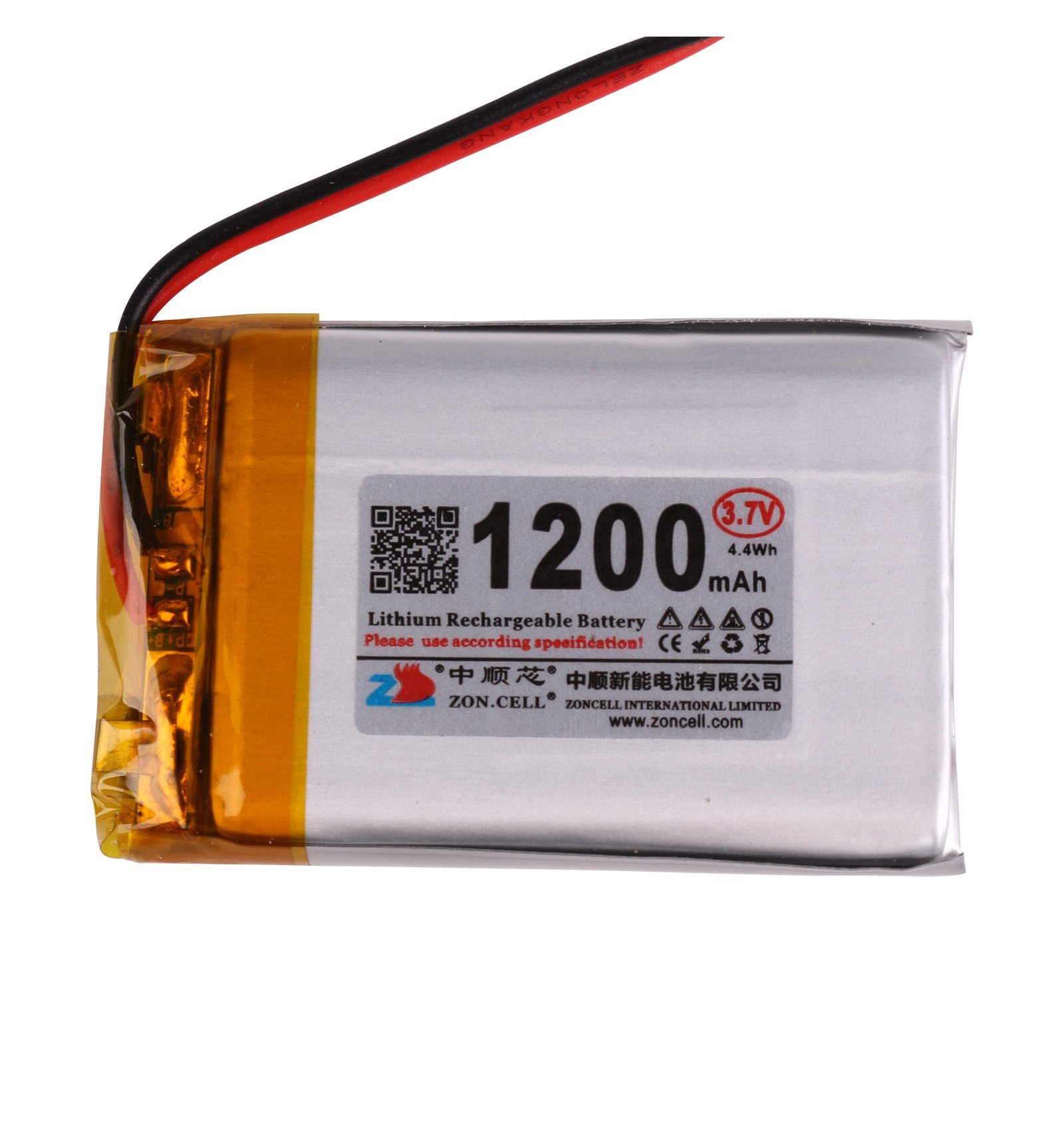
LiPo Battery 3.7V 1200mAh Lightweight, Rechargeable Battery
MAENT® 3.7V 1000 mah Actual capcity lipo Li ion Rechargeable Battery Lithium ion Polymer Cell for Bluetooth Science Project Toys MP3 GPS PSP Handheld Device - NOT for RC CAR OR Drone Usage. KP 402025 3.7v 300mah LiPo Battery Lithium Polymer 300mah Rechargeable Battery for Speaker, RC,Toys, Robotics, Smart Watch (w26, w26+)
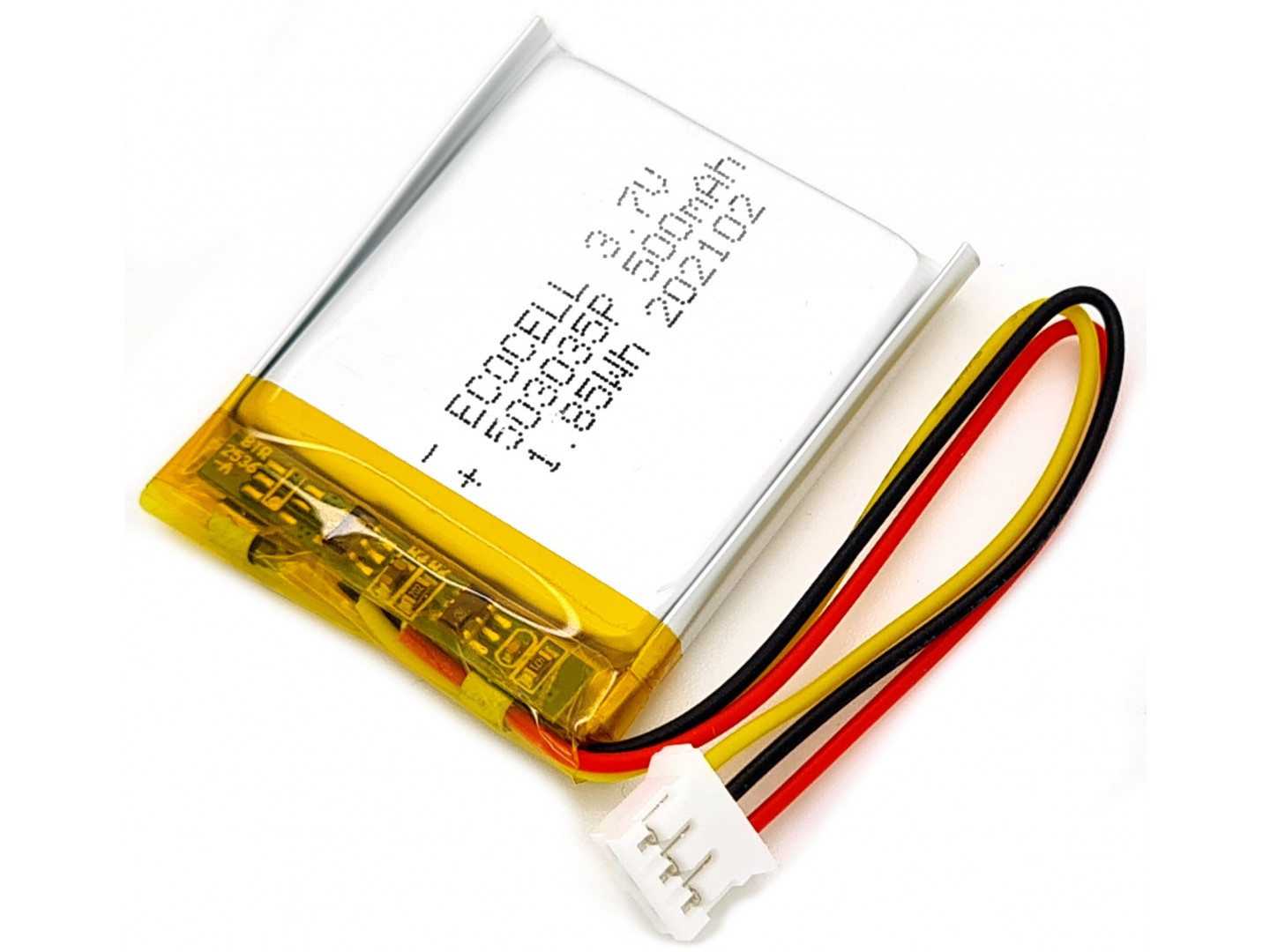
LiPo Battery 500mAh 3.7V 3 Wires(3 pin) 503035, Polymer Lithium Ion Ecocell
ReplaceMeClose. LiPo Battery Terminal Welding. Here's a close up of the tab welding. Once a pile of a given anode type is made, it is brought together with a pile of the cathode of the same size. A semi-permeable membrane is inserted between the layers, and the three strips are then folded together many times.
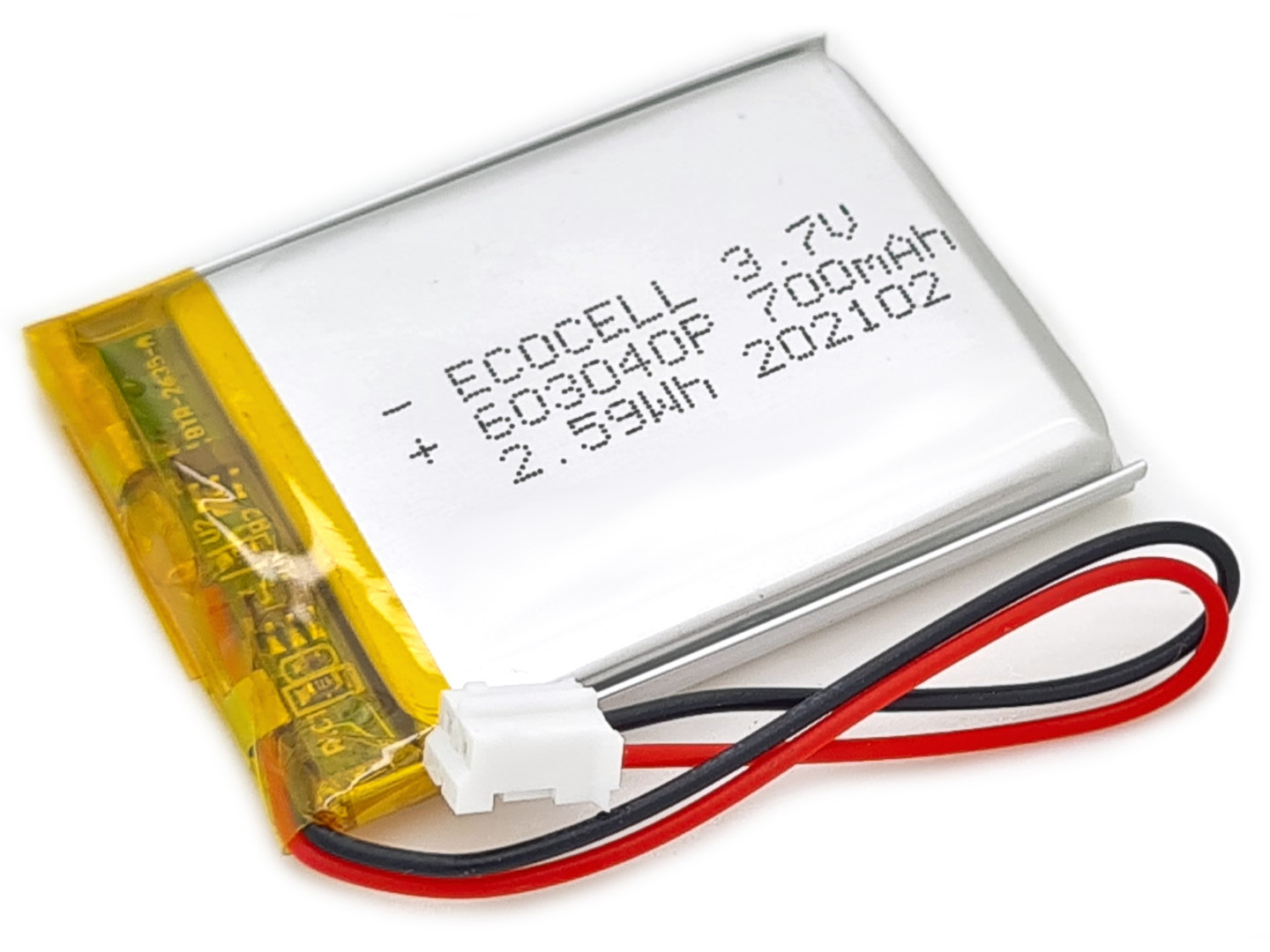
LiPo Battery 700mAh 3.7V 603040, Polymer Lithium Ion Ecocell
Chapter 1. History of All Kinds of Batteries (From lead acid) Chapter 2. Internal Structure of a Lithium Polymer Battery. Chapter 3. Advantages and Disadvantages of Lithium Polymer Batteries. Chapter 4. Differences between Li-Ion and Li-Polymer (LiPo) Battery. Chapter 5.

New 3.7V LiPo Battery LP783764 2300mAh 8.51Wh
A lithium polymer battery, or more correctly lithium-ion polymer battery (abbreviated as LiPo, LIP, Li-poly, lithium-poly and others), is a rechargeable battery of lithium-ion technology using a polymer electrolyte instead of a liquid electrolyte. Highly conductive semisolid polymers form this electrolyte.These batteries provide higher specific energy than other lithium battery types and are.
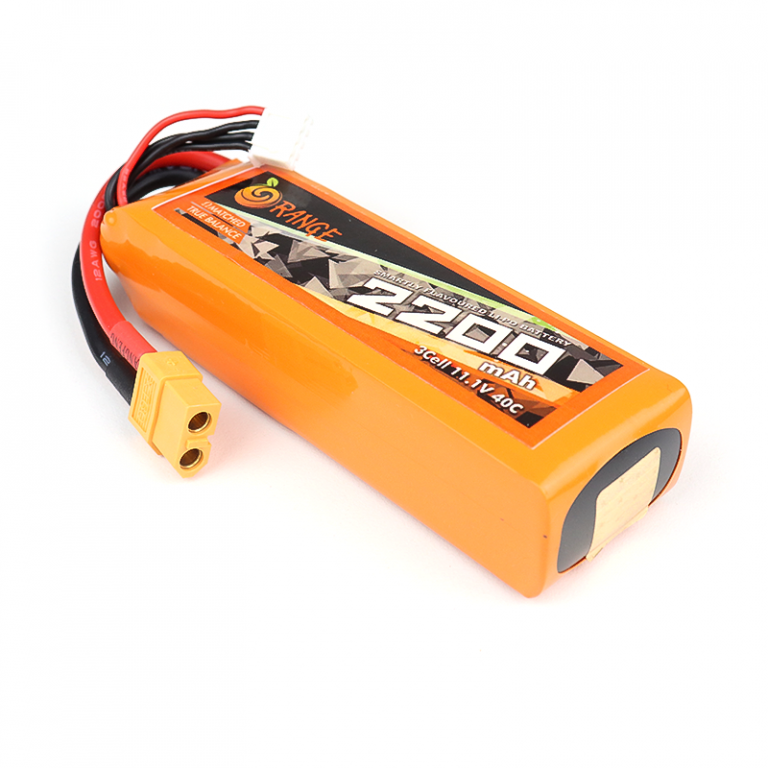
Buy Orange 2200mAh 3S 40C/80C LiPo Battery Pack In India
Lithium Ion Battery is a topic page on ScienceDirect that provides an overview of the history, performance, materials, and applications of lithium-ion batteries (LIBs), the most widely used energy storage devices in modern society. The page also links to various related webpages that cover different aspects of LIBs, such as novel approaches, environmental impacts, manufacturing processes, and.
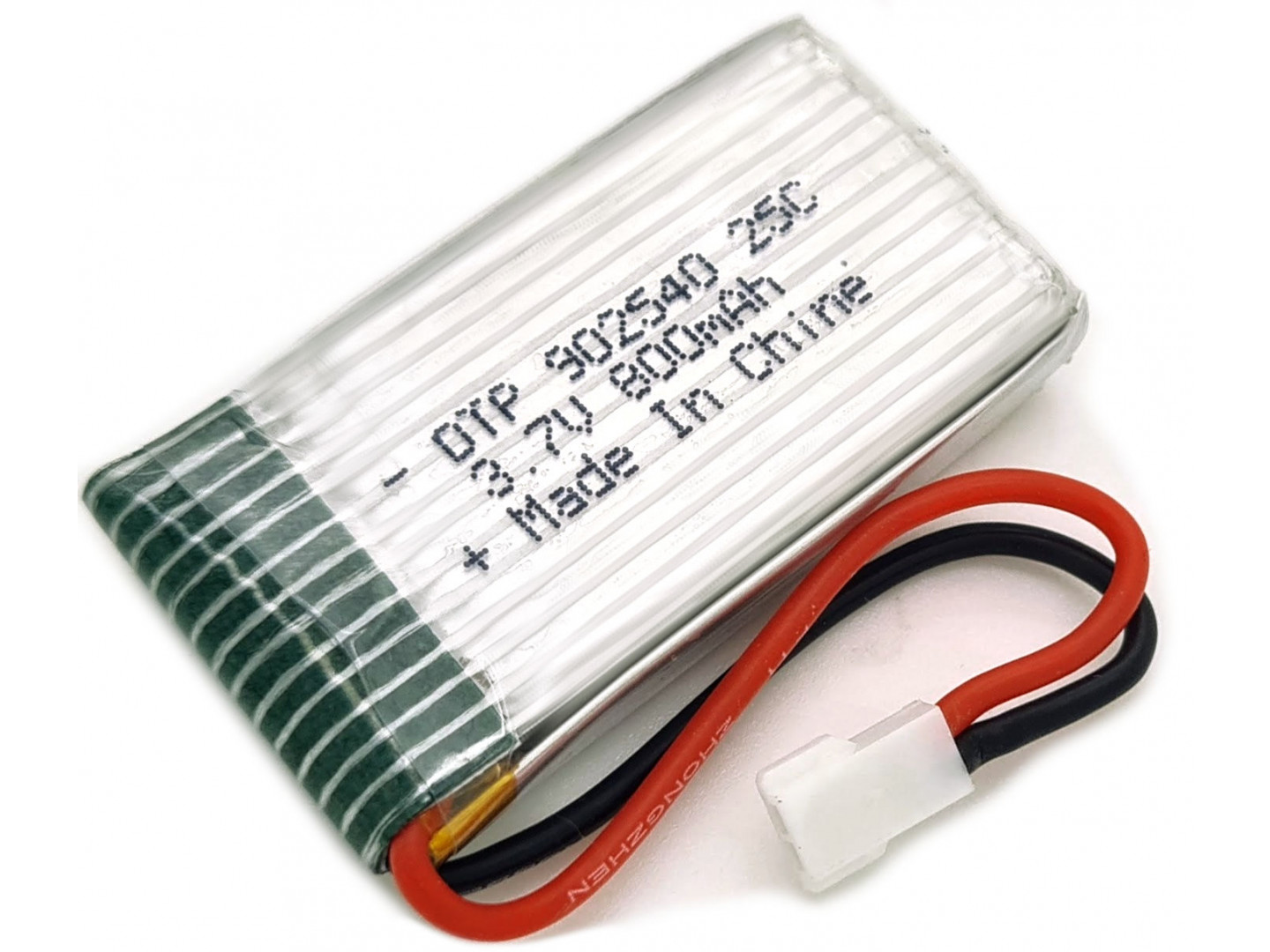
LiPo Battery 800mAh 3.7V High Discharge 902540, Polymer Lithium Ion Ecocell
Cons: Advantages of Lithium Polymer Batteries Advantages of Li-Ion Batteries. The general difference between lithium polymer and lithium-ion batteries is the characteristic of the electrolyte used. Li-ion batteries use a liquid-based electrolyte. On the other hand, the electrolyte used in LiPo batteries is either solid, porous, or gel-like.